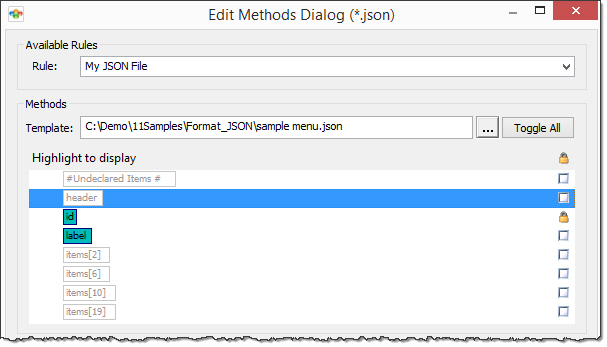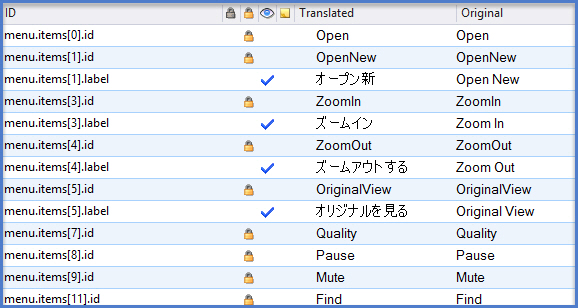|
|
Localizing JSON Files |
|
|
Localizing JSON Files |
The majority of JSON files can be parsed using the built-in 'JSON ShowAll' rule.
In addition to presenting segments for translation in the normal way, this rule pulls in an ID value too.

The show all rule is suitable when all segments in the JSON file should be translated.
Just like parsing XML or Text files, further control is available via the ezParse technology when some segment types in the JSON file are localizable and some are not. Consider the following example.

In the above example, only the highlighted segments are localizable. A customized rule is needed to identify just those segments. Furthermore the ID that is available should be displayed by the rule, but locked so it cannot be translated.
From the HOME ribbon, launch the ezParse dialog, select JSON Files in the File groups and *.json in the File extensions.
To create a new rule, give it a name and

With this new rule saved, a prompt will appear when a json files is inserted from then on because there are multiple rules available to CATALYST when parsing JSON.
Using the newly defined rule, the following segments appear localizable in CATALYST. The useful ID is also displayed for context during translation, however because it was marked as Locked when creating the parsing rule, it cannot be edited during localization.
